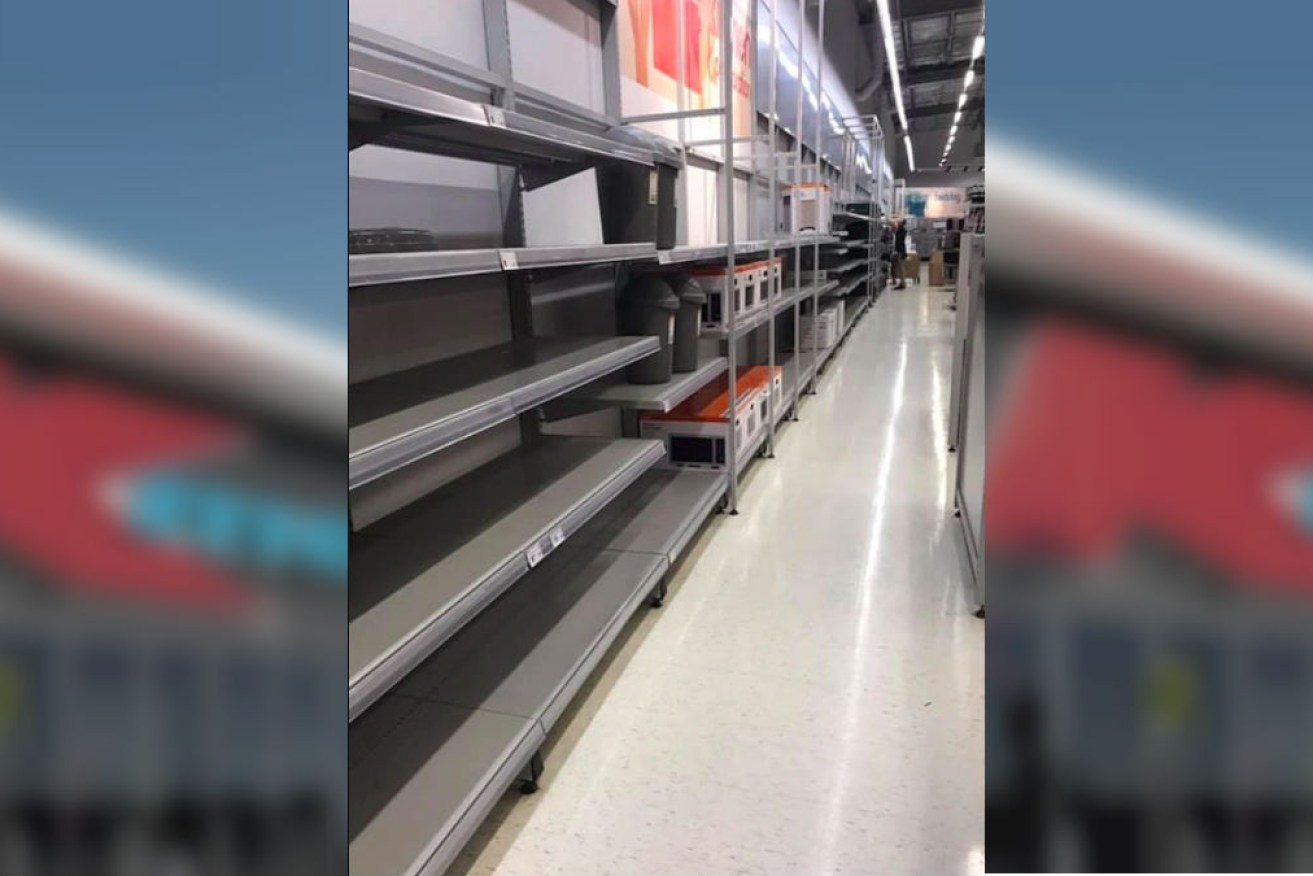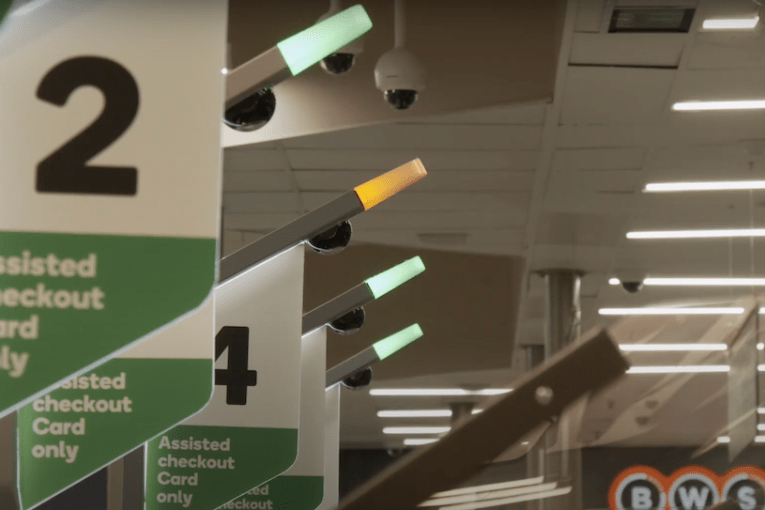Kmart’s empty shelves prompt shopper backlash, but there’s a catch


Stock shortages means shelves are bare, but shoppers can't have cheap goods without consequences. Photo: Facebook/TND
Kmart shoppers around the country have been confronted with empty shelves, as the retailer – among others – struggles with sluggish international supply lines, thanks to the coronavirus.
Shoppers have bemoaned not being able to get their hands on furniture, bedding, clothing, kitchenware – just about everything.
Kmart issued the apology on its Facebook page earlier this week, with retail director John Gualtieri emailing customers to explain that, as well as supply issues, Kmart had paused some shipments due to a slowdown in demand during the pandemic.
“Some of the countries where we manufacture our physical products were also put into lockdown at this time, putting production of some of our goods on hold for a period of time,” Mr Gualtieri said.
Many of Kmart’s items are designed in Melbourne, but sent overseas to countries like China, Bangladesh, India and Indonesia for manufacturing.
Many shoppers have said they’ll boycott Kmart until it starts stocking Australian-made products, but it’s not that easy, retail expert Louise Grimmer explained.
Kmart’ business model is built around low prices, and that’s why its shoppers love it.
“Those Kmart customers calling for Kmart and other retailers to stock more Australian-made products, really want to have their cake and eat it too,” Dr Grimmer, senior lecturer at University of Tasmania, told The New Daily.
“The seemingly insatiable appetite for on-trend but cheap products, predominantly sold at Kmart and other discounters, is the result of the retailer’s ability to respond really quickly to trend forecasts by producing products in countries where materials and labour are much, much cheaper than they are in Australia.”
Home v away
If we look at Kmart’s (out-of-stock) entertainment units, selling for $39, and compare them to an Australian-made, Australian timber entertainment unit, the price disparity is huge.

An entertainment unit from Kmart, made from oak-look particle board and solid pine.
Most of the Australian-made timber furniture is high quality, made from Aussie hardwood.

Here’s an Australian-made timber entertainment unit. Even on special, it’s a sight more expensive than Kmart’s offering. Source: Ozdesignfurniture.com.au
Sure, one product is from a department store, the other from a furniture store, but that’s still quite a gap in price.
Why?
Dr Grimmer explained there are several factors at play. Materials and labour are the two main contributors to higher costs for Australian-made products, she said.
Raw materials overseas, like in China, are cheaper because there’s more demand, therefore they’re more plentiful.
Wages are also much lower than in Australia, and workers in China don’t get the same employment benefits we get here.
Finally, Dr Grimmer said, Chinese companies receive a refund from the government on export products, pushing down the cost of manufacturing even further.
It’s not just furniture. We can see the same pattern across clothing, bedding and exercise goods.
#Kmart battle to replenish shelves. Sadly, customer demand for low priced, mass-produced products requires global sourcing. Those complaining about Chinese products and calling for boycotts, also demand low prices. #retail #China #logistics #SupplyChain@newscomauHQ pic.twitter.com/4WQThNHZ8J
— Professor Gary Mortimer 🛒🛒🛒 (@ProfRetail) June 10, 2020
“Consumers have created a market for cheap and cheerful products and it’s now a bit rich for some people to turn on Kmart and demand they start selling Australian-made products to combat empty shelves,” Dr Grimmer said.
“The same products would be more expensive if they were manufactured in Australia and so then Kmart would be faced with criticism about price increases.”
So shoppers are faced with a choice: Suck up the empty shelves and wait for their low-priced favourites to be shipped in from overseas. Or, shell out for Australian made.
Shoppers looking for guidance on Aussie products can find details here and at the Australian Competition and Consumer Commission website.
It’s not just Aussie-made goods
Research released on Thursday showed that when it comes to sustainability, consumer expectation is high but pockets remain shallow.
Although it does look at sustainability, the report from Power Retail can be used as an indication that shoppers want to buy products that align with their values – whether it be eco-friendly or Australian made – but aren’t prepared to pay for it.
For example, the research of almost 10,000 online Australian shoppers revealed 29 per cent of respondents expect brands to have sustainable practices, but they aren’t prepared to pay extra for it.
“This disconnect of expectation versus the willingness to pay for it poses a real issue for retailers, as they’re expected to cop the brunt of these costs, with little help from consumers,” Power Retail managing director Grant Arnott said.











